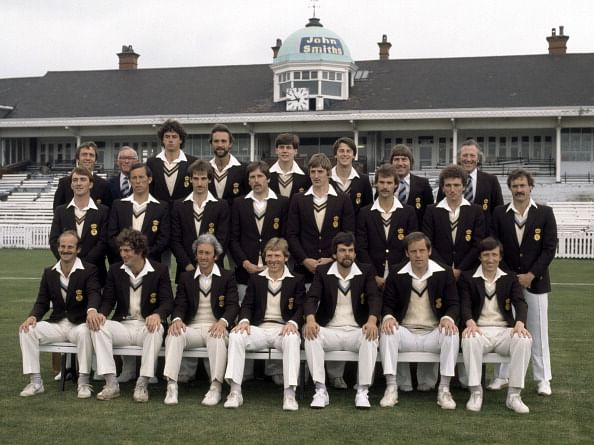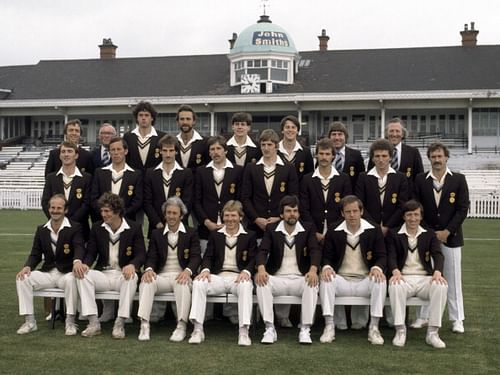
An interview with former Derbyshire batsman Alan Hill - Part 2

You started playing for Derbyshire juniors in 1965. How did that come about?
It is quite an outpost in the peak – our house was forty-five miles from Derby and eighteen from Old Trafford. I came down for a school trial and got picked up from there. Denis Smith was the coach and I had my trial under his very watchful eye. Bernard had been here, which helped, but I progressed to play for the County Colts, initially under the captaincy of Tony Borrington.
He was a year older than me and I took over from him as skipper when he became too old for the age group.
What was life like for a budding young cricketer then, compared to today?
The place was much different then. The County Ground was pretty ramshackle, but we had some good lads who just wanted to play the game. The facilities were largely peripheral to us and, although it bred some humour in the dressing room, we knew our place in the scheme of things and it gave us a good grounding in the game.
It is better now, because youngsters are more readily accepted and they can be assimilated into the team more easily. But it toughened you up. Denis Smith was a gruff old coach, but his bark was worse than his bite. He could be blunt, but he had played the game and knew all of its pitfalls. If you had a bad day he would empathise with you, as long as he could see that you were putting the effort in.
Denis taught me things, long before the days of videos and statistical analysis and I still use them when I coach. If you study top professional cricketers, perhaps the most important thing is balance. When I wasn't playing well, I started to fall over to the off side and got out leg-before wicket.
He came up to me in the nets during such a trot and said, in his broad Derbyshire accent “Ey up...when tha walks down street, what position is tha head in?” I was baffled and showed him that you walked like this (mimics).
“Exactly” he said. “Now try doin' it with tha head to one side.”
I couldn't do it and it showed perfectly where I was going wrong. He also taught me that when you drive the ball and drag your back foot to do so, you should drag on your big toe. It keeps your shoulders and hips side on and a few players tend to get opened up by not doing that. It's the same for bowlers – if they're balanced at release, they will generally bowl good lines, while those who arch away tend to over-compensate and are more erratic.
Did you always open the batting?
Yes. Occasionally I would drop down to three and if I was out of form I dropped down the order, but by and large I opened throughout my career.
You joined the Derbyshire staff in 1970. Was that a big moment, or did you see it as just the start of things?
No, it was a starting point. You have to work your way up the ladder. I remember when I got my cap and we were playing Lancashire, little Harry Pilling came up to me and said well done, then told me I'd done the easy bit!
It had taken me seven or eight years, but Harry said that the hardest thing was to stay there, having reached the standard. David Steele used to say that it didn't matter how many runs you scored the previous summer, you started a new one with nought against your name. The really good players achieve consistency, whereas the mere mortals have to endure the bad trots.
To be continued..
You can read Part 1 here.